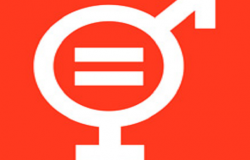
This paper analyses the role of feminist mobilizing in formulating the gender equality agenda of the Sustainable Development Goals (SDGs): the goal (5) to ‘achieve gender equality and empower all women and girls’ and gender‐related targets across other SDGs. It explores how three key drivers shaped its contours and the effectiveness: (1) context of socioeconomic and political environment; (2) institutions; and (3) the processes of movement building. While feminist mobilizing led to significant advances in the SDGs relative to the Millennium Development Goals (MDGs), important unresolved barriers of financing and political opposition to women's human rights and gender equality remain and will require continued feminist mobilizing. This paper argues for the need to locate feminist mobilizing for the SDGs in the context of the history and persistence of gender inequality and violations of girls’ and women's human rights, and the struggle against these violations. This history is located within economic, social and political environments that are sometimes more open to progressive social change but often, as in the current global conjuncture, may not be.